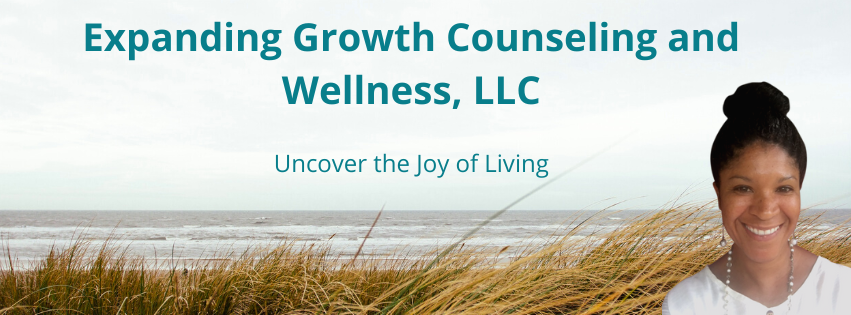Managing Fears About “Getting Back to Normal”
The world is starting to open up again. People are beginning to get deadlines to return to work in person or their back in the office. Some of us are looking for employment. Mask mandates are being lifted (and there are lots of conflicting opinions about that). Vacations and travel are back on the agenda. Have you checked in with yourself? How are you feeling?
You may be excited and breathing a sigh of relief. But, if you're like many people, including myself, you may be feeling a little or a lot of anxiety.
Although it has been difficult, many of us have established a new normal as we've had the opportunity to adapt to living in a global pandemic. We've had the chance to slow down, assess our priorities, and make changes to improve our lives (whether we wanted to or not).
We've experienced multiple losses as well. We've lost loved ones, relationships, job opportunities, and even our sense of control, security, and safety. These losses change us and impact how we feel about and manage ourselves and the world as we seek, yet again, to find a new sense of normal.
So...if you're struggling right now, it's okay. We have been and are going through a lot! Here are a few tips to support you in navigating through these uncertain times.
1.Acknowledge, befriend and make space for your feelings.
Feelings are not the enemy. They are your friend. They serve as messengers to provide vital information that can support you in making necessary shifts and adjustments. They are much easier to manage when they aren't intense.
Feelings become intense when we ignore them. Take time to make space and acknowledge what you feel. When you recognize feelings of fear, loneliness, or worry, you can make the necessary adjustments (like a journal, problem-solve or talk to a good friend) to better manage these feelings. When you ignore them, they intensify and can overwhelm us.
2.Move away from all-or-nothing thinking.
Our thoughts about an experience can make or break us. All-or-nothing thinking is a cognitive distortion that will create anxiety and make you feel stuck. We engage in all-or-nothing thinking when we see things in black or white categories. Let's put this into perspective with the idea of re-entering the world after a pandemic.
An example would be if you started a new hobby during the pandemic, such as basket weaving. You've taken online classes, you purchased all the materials you need, and you love the beautiful baskets you've created this past year. You even hand them out as gifts to your friends and loved ones, and they're a big hit! You've recently been told that you have to return to work, and you immediately think, "Oh no, I'm going have to give up my hobby! There's no way I can keep doing this when I go back to work in the office!" All-or-nothing thinking makes us feel like we can't adjust or have to give up something we enjoy to do something we dislike.
The reality is that you can do both. You can go back to work in the office and still make beautiful baskets in your free time. This is the case for any new healthy habit or hobby you've picked up doing quarantine. Keep doing it, no matter what.
3.Embrace "good enough."
Move away from perfection. It's an unrealistic concept that doesn't exist and keeps us stuck. When we expect perfection from ourselves and others, we are consistently disappointed.
We are all learning how to re-enter society after experiencing quarantine and a global pandemic. We've never done it before, so there will be a learning curve and growing pains we will feel along the way.
I encourage you to adopt the mantra "good enough" about how you are managing life right now. Be gentle with yourself. We'll talk more about this towards the end of this message.
4.Create and implement an effective stress management plan.
Tackle your stress level head-on by thinking through and implementing an effective stress management plan. It doesn't have to be overly complicated. Instead, make a plan to do things that help make your life easier. Think about the things you usually do when you're not stressed and make a plan to start doing those things again.
If you have a tough time sticking to your plans, ask a good friend to be your accountability partner. You don't have to do it alone, and committing to a plan to help you feel better and manage stress will support you in the process of "getting back to normal ."
Lately, I've developed a stress management plan of eating healthier foods and exercising consistently. It's helping me manage the stress of the many tasks I'm juggling these days, and my energy level is so much higher, I'm able to get more done. It's working for me, and I'm grateful for the shift.
5.Be gentle with yourself.
Practicing gentleness looks like not judging our efforts and choosing not to set unrealistic expectations. It's about practicing patience and compassion with ourselves. When we're gentle with ourselves, we take the time to check in with ourselves and not judge our challenges and shortcomings.
This looks like learning from our stress and leaning into uncomfortable feelings to learn about what's happening with us internally to better tend to our needs.
It's about using the same loving and gentle tone as we would with a dear friend who's having a hard time. I've said it before, and I'll say it again, you are worthy of your own love and attention. If you are having a tough time adjusting to re-entering the world, be patient with yourself, seek support and keep moving forward. Even if you're taking baby steps, you're moving forward. Celebrate that!
Sending you love and blessings,
Danielle ❤️
